Entrepreneurship Talks
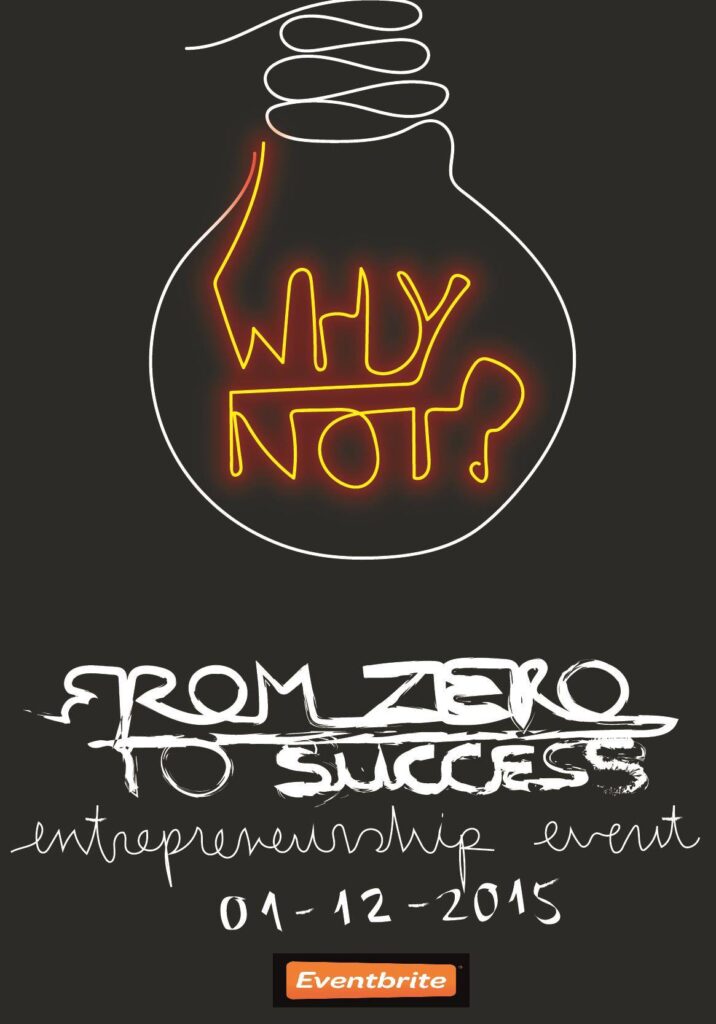
Company: Nomative
Date: Dec 2015 – Feb 2017
Location: Helsinki, Finland- Bilbao, Spain- San Francisco, California
Metodology: Design Thinking
Role: Project Manager
Team Size: 3
ABOUT
The Project
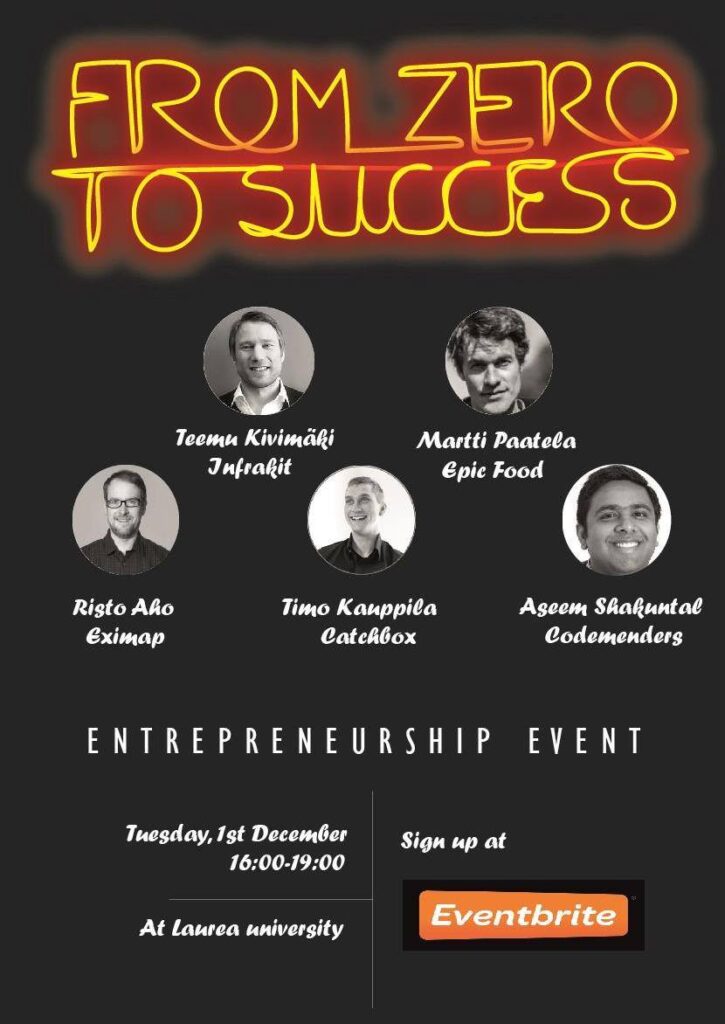
«From Zero to Success» is a series of events where entrepreneurial stories are shared with the mission of entertaining, imparting knowledge, and creating an impact on society.
Scope: Carry out the «From Zero to Success» (FZTS) event series in different locations, including Helsinki, Bilbao, and San Francisco, with the participation of prominent speakers and diverse entrepreneurial profiles. The goal is to provide a space where attendees can gain knowledge, inspiration, and valuable connections, addressing topics such as fundamental steps in entrepreneurship, financing strategies, and methods for attracting and retaining customers in businesses.
Finland
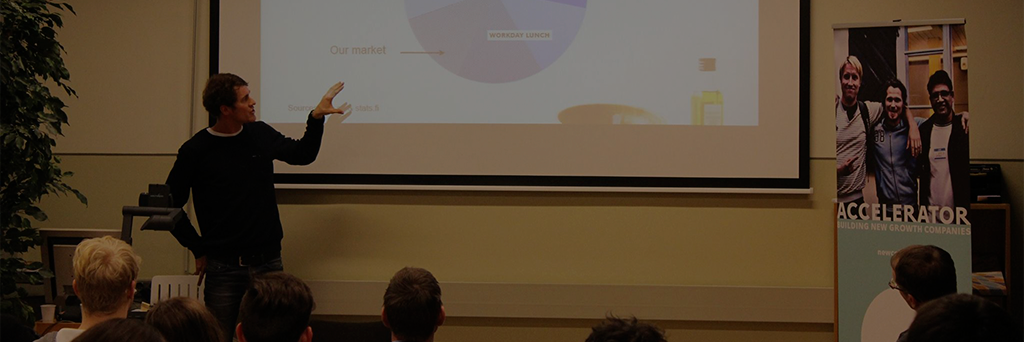
On December 1, 2015, the first edition of the «From Zero To Success» (FZTS) event series took place in Helsinki, Finland. The event was held in one of the rooms of the Newco association.
The inaugural edition of FZTS featured the participation of 5 prominent speakers in the business field. The event began with presentations by Marti Paatela and Teemu Kivimäki, who shared their knowledge and experiences on the 5 essential steps every entrepreneur must take, as well as common mistakes when starting a business. Both emphasized the importance of adopting a learning mindset and developing projects that offer sustainable solutions to society.
Following this, a panel discussion took place in which all speakers participated, deliberating on the various options available for obtaining financing. During this session, diverse strategies and approaches to accessing funding were explored, providing attendees with valuable information and multiple perspectives on the topic.
After the question-and-answer session, a networking space was opened where the audience and speakers had the opportunity to interact, share ideas, advice, and experiences. This conducive environment for knowledge exchange and networking allowed participants to expand their professional network and glean insights from other entrepreneurs’ experiences.
The first edition of FZTS stood out for providing a space where entrepreneurs and professionals in the business field could gain practical knowledge, inspiration, and establish valuable connections in an environment conducive to learning and business growth.
Spain

On April 29, 2016, the second edition of FZTS took place at BBF (Bilbao Berrikuntza Faktoria) in Bilbao, Spain. The event sought to provide diverse perspectives by featuring the participation of 5 entrepreneurial profiles:
Taig Mc Carthy: A young entrepreneur and creator of Gik Live! with a passionate vision about the importance of actively creating in life and tackling challenges with determination.
Jose Manuel Torres: A coach, engineer, PhD, entrepreneur, author, and mentor, known for his participation in the ETB program «El Gran Salto» and CEO of Planifica tu éxito. He shared his experience and knowledge about the 7 Ps of planning and the importance of coherence in the pursuit of success.
Zaira Vicente Adam: A holistic life coach and founder of Zaira life coaching. She emphasized the importance of action and how actively seeking change is essential for personal and professional success.
Marian Allende: An inspiring entrepreneur, founder, and project manager of the Basquenet agency. Admired for her perseverance and constant struggle in the face of difficulties, Marian broke barriers and created her own path to a better future through entrepreneurship.
Juan Alberto Gonzalez: A member of Secot and currently retired but still active. After a successful 24-year career in various companies holding managerial positions in the economic-financial area, he decided to create his own business consultancy to share his experience with other entrepreneurs.
These outstanding entrepreneurs shared their stories of success, failure, and lessons learned, providing inspiration and guidance to event attendees. The second edition of FZTS resulted in an enriching space for the exchange of ideas, learning, and the promotion of the entrepreneurial spirit.
California

On February 6, 2017, the third and final edition of FZTS took place at the Mid-Market WeWork Space in San Francisco, United States.
The theme «How to get more customers» marked this edition, exploring strategies and approaches to attract and retain customers in businesses. The main topics addressed during the event included:
Digital marketing and online customer attraction strategies: Effective methods were presented to leverage digital platforms and social media to attract and convert potential customers into real clients.
Customer experience and loyalty: The importance of providing an exceptional customer experience was discussed, highlighting how this can lead to customer loyalty and sustainable business growth.
Sales and persuasion strategies: Effective sales techniques, addressing customer objections, and building strong relationships for consistent business growth were explored.
Success stories and real experiences: Success cases of entrepreneurs and business owners who successfully attracted and retained a solid customer base were shared, providing inspiration and practical examples for attendees.
This final edition aimed to provide participants with the tools and knowledge necessary to attract and retain customers in their businesses, contributing to their growth and entrepreneurial success.
Design Thinking
For the project, the Design Thinking methodology was employed, incorporating agile techniques in each phase to swiftly adapt to changes, foster collaboration, and enhance efficiency.
❤️ Empathize
In the Empathize phase, an approach of open interviews and observation sessions was used to thoroughly comprehend the needs of potential participants and clients. The user stories technique was applied to capture and prioritize crucial requirements, aiding in the clear definition of project objectives.
The user stories represented the needs and expectations of event participants. A comprehensive understanding of these stories allowed a focus on providing appropriate solutions, meeting attendees’ expectations, and delivering insights, inspiration, networking opportunities, and valuable resources for business growth.
🔍 Define
Within the Define phase, the user story mapping technique was employed to visualize and organize identified requirements. This facilitated the establishment of clear goals and the breakdown of work into manageable increments. The agile project management method Scrum was utilized for task planning within the team, working in short sprints, and conducting daily stand-up meetings.
💡 Ideation
Team meetings involved brainstorming sessions to generate a wide range of ideas related to event content, format, and approach. For instance, when discussing potential conference topics, all team members were encouraged to share ideas about emerging trends, common challenges faced by entrepreneurs, and innovative approaches to business success.
🔨 Prototipying
In the Prototyping phase, the Feedback Loops technique was implemented to obtain constant feedback from users and enhance prototypes:
- Interactive prototyping: Digital tools were used to create interactive prototypes of events, including elements such as the registration interface, conference program, networking options, and other key aspects of the user experience.
- Feedback solicitation: Prototypes were presented to a selected group of users representative of the target audience. Feedback, observations, and suggestions were collected during their interaction with the prototypes.
- Analysis and understanding of feedback: User feedback was carefully analyzed, identifying patterns and trends to understand areas for improvement and strengths of the prototype.
- Iterations and improvements: Using the received feedback, iterations were made on the prototypes, incorporating changes and improvements based on user needs and preferences.
- New feedback cycles: Improved prototypes were presented to new users for additional feedback, repeating the process of soliciting feedback, analysis, and improvements.
📓 Test
During the Testing phase, a pilot event was conducted in Finland. Online surveys and analytics tools were utilized to collect and analyze participants’ feedback, enabling real-time adjustments.
The combination of the Design Thinking methodology and agile project management techniques facilitated quick adaptation to the needs and expectations of participants and clients. This approach resulted in the delivery of increasingly impactful and relevant events, creating significant value for the audience.
Key Takeaways
🪤 Who Moved My Cheese?
The initial idea for this project was to organize a TEDx talk in Finland. We were planning a month and a half-long journey, so we had time to carry it out.
However, when we had some confirmed speakers, we realized that obtaining the license for a TEDx talk took about 3 months, and it had to be a non-profit event, solely for educational purposes.
At first, we were quite concerned, but we remembered the lessons from the book «Who Moved My Cheese?» which we read before starting the project. The book teaches about accepting change as an inevitable part of life and being proactive in seeking new opportunities. We applied this lesson by realizing that, despite not being able to organize a TEDx talk in Finland, we still had the chance to host an inspiring and educational event.
We quickly adapted to the situation and reformulated our project, creating a series of entrepreneurship events called «From Zero to Success.» We learned that the key was to stay open to new possibilities and find a viable alternative instead of clinging to an initial plan that was no longer feasible.
🤝 Collaboration
Collaboration was necessary in all areas of this project; without this resource, From Zero To Success would not have come to fruition.
Organizing events can be challenging in terms of generating income. In this case, collaboration was crucial to achieving the financial viability of the project, as it allowed us to access resources we wouldn’t have had otherwise. For example, we secured all the venues for free, representing a significant cost saving considering the usual rental expenses.
Thanks to collaboration, we were able to secure sponsorship from well-known brands such as Redbull, Coca-Cola, and Café Fortaleza. These companies not only provided financial support but also offered complimentary beverages for attendees, enhancing the event experience and adding extra value.
Collaboration also provided us with the opportunity to bring renowned speakers at no cost. Through connections established at other entrepreneurship events, we could involve experts without incurring additional expenses.
In summary, collaboration was fundamental in overcoming financial challenges, accessing valuable resources, securing sponsorships, and creating synergies that made the successful development of the event series possible. Without collaboration, achieving the desired results and conducting these learning-focused events would have been difficult.
Entrepreneurship Events

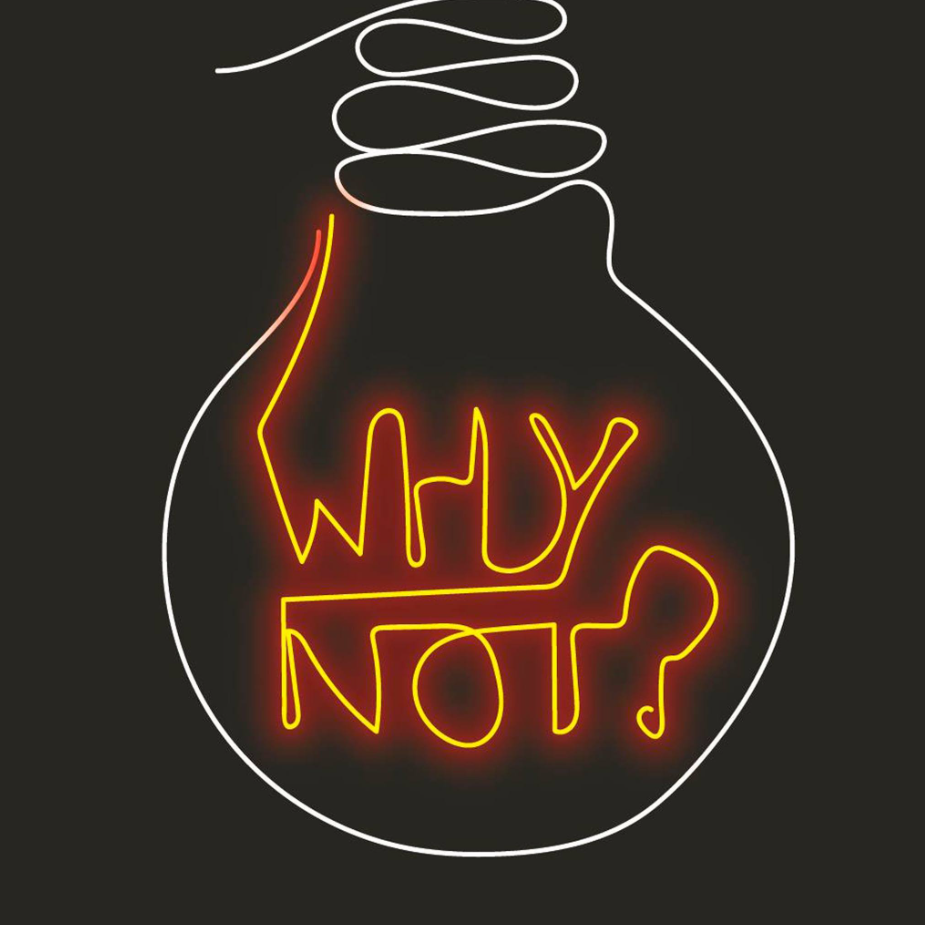
the project
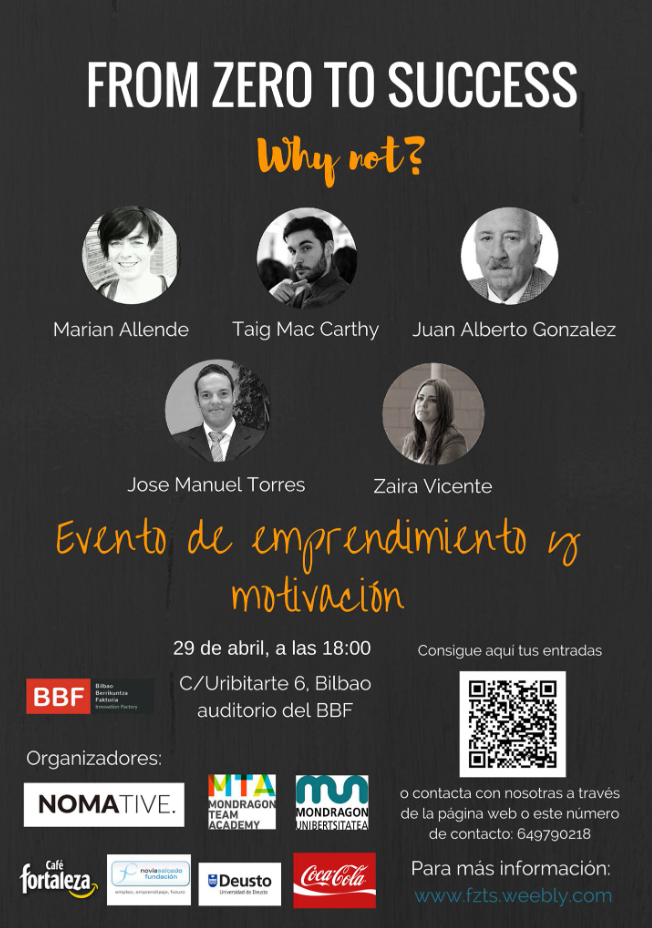
«From Zero to Success» is a series of events where entrepreneurial stories are shared with the mission of entertaining, imparting knowledge, and creating an impact on society.
Scope: Carry out the «From Zero to Success» (FZTS) event series in different locations, including Helsinki, Bilbao, and San Francisco, with the participation of prominent speakers and diverse entrepreneurial profiles. The goal is to provide a space where attendees can gain knowledge, inspiration, and valuable connections, addressing topics such as fundamental steps in entrepreneurship, financing strategies, and methods for attracting and retaining customers in businesses.
Finland

On December 1, 2015, the first edition of the «From Zero To Success» (FZTS) event series took place in Helsinki, Finland. The event was held in one of the rooms of the Newco association.
The inaugural edition of FZTS featured the participation of 5 prominent speakers in the business field. The event began with presentations by Marti Paatela and Teemu Kivimäki, who shared their knowledge and experiences on the 5 essential steps every entrepreneur must take, as well as common mistakes when starting a business. Both emphasized the importance of adopting a learning mindset and developing projects that offer sustainable solutions to society.
Following this, a panel discussion took place in which all speakers participated, deliberating on the various options available for obtaining financing. During this session, diverse strategies and approaches to accessing funding were explored, providing attendees with valuable information and multiple perspectives on the topic.
After the question-and-answer session, a networking space was opened where the audience and speakers had the opportunity to interact, share ideas, advice, and experiences. This conducive environment for knowledge exchange and networking allowed participants to expand their professional network and glean insights from other entrepreneurs’ experiences.
The first edition of FZTS stood out for providing a space where entrepreneurs and professionals in the business field could gain practical knowledge, inspiration, and establish valuable connections in an environment conducive to learning and business growth.
Spain

On April 29, 2016, the second edition of FZTS took place at BBF (Bilbao Berrikuntza Faktoria) in Bilbao, Spain. The event sought to provide diverse perspectives by featuring the participation of 5 entrepreneurial profiles:
Taig Mc Carthy: A young entrepreneur and creator of Gik Live! with a passionate vision about the importance of actively creating in life and tackling challenges with determination.
Jose Manuel Torres: A coach, engineer, PhD, entrepreneur, author, and mentor, known for his participation in the ETB program «El Gran Salto» and CEO of Planifica tu éxito. He shared his experience and knowledge about the 7 Ps of planning and the importance of coherence in the pursuit of success.
Zaira Vicente Adam: A holistic life coach and founder of Zaira life coaching. She emphasized the importance of action and how actively seeking change is essential for personal and professional success.
Marian Allende: An inspiring entrepreneur, founder, and project manager of the Basquenet agency. Admired for her perseverance and constant struggle in the face of difficulties, Marian broke barriers and created her own path to a better future through entrepreneurship.
Juan Alberto Gonzalez: A member of Secot and currently retired but still active. After a successful 24-year career in various companies holding managerial positions in the economic-financial area, he decided to create his own business consultancy to share his experience with other entrepreneurs.
These outstanding entrepreneurs shared their stories of success, failure, and lessons learned, providing inspiration and guidance to event attendees. The second edition of FZTS resulted in an enriching space for the exchange of ideas, learning, and the promotion of the entrepreneurial spirit.
California

On February 6, 2017, the third and final edition of FZTS took place at the Mid-Market WeWork Space in San Francisco, United States.
The theme «How to get more customers» marked this edition, exploring strategies and approaches to attract and retain customers in businesses. The main topics addressed during the event included:
Digital marketing and online customer attraction strategies: Effective methods were presented to leverage digital platforms and social media to attract and convert potential customers into real clients.
Customer experience and loyalty: The importance of providing an exceptional customer experience was discussed, highlighting how this can lead to customer loyalty and sustainable business growth.
Sales and persuasion strategies: Effective sales techniques, addressing customer objections, and building strong relationships for consistent business growth were explored.
Success stories and real experiences: Success cases of entrepreneurs and business owners who successfully attracted and retained a solid customer base were shared, providing inspiration and practical examples for attendees.
This final edition aimed to provide participants with the tools and knowledge necessary to attract and retain customers in their businesses, contributing to their growth and entrepreneurial success.
Core team
The team consisted of three members, each playing a key role:

Project Leader
- Monitor and manage the project’s financial resources.
- Develop budgets.
- Detailed tracking of project costs and expenses.
- Lead and coordinate all team activities involved.
- Define and communicate deadlines for each stage of the project.

Customer Leader
- Establish and maintain strong relationships with clients.
- Understand their needs and expectations, ensuring their satisfaction.
- Seek collaborations, sponsorships, suitable venues, and select relevant speakers for events.

Communication Leader
- Management of both internal and external communication.
- Development of online and offline marketing strategies to promote and disseminate the project, maintaining a positive image and reputation.
Design Thinking
For the project, the Design Thinking methodology was employed, incorporating agile techniques in each phase to swiftly adapt to changes, foster collaboration, and enhance efficiency.
❤️ Empathize
In the Empathize phase, an approach of open interviews and observation sessions was used to thoroughly comprehend the needs of potential participants and clients. The user stories technique was applied to capture and prioritize crucial requirements, aiding in the clear definition of project objectives.
The user stories represented the needs and expectations of event participants. A comprehensive understanding of these stories allowed a focus on providing appropriate solutions, meeting attendees’ expectations, and delivering insights, inspiration, networking opportunities, and valuable resources for business growth.
🔍 Define
Within the Define phase, the user story mapping technique was employed to visualize and organize identified requirements. This facilitated the establishment of clear goals and the breakdown of work into manageable increments. The agile project management method Scrum was utilized for task planning within the team, working in short sprints, and conducting daily stand-up meetings.
💡 Ideation
Team meetings involved brainstorming sessions to generate a wide range of ideas related to event content, format, and approach. For instance, when discussing potential conference topics, all team members were encouraged to share ideas about emerging trends, common challenges faced by entrepreneurs, and innovative approaches to business success.
🔨 Prototipying
In the Prototyping phase, the Feedback Loops technique was implemented to obtain constant feedback from users and enhance prototypes:
- Interactive prototyping: Digital tools were used to create interactive prototypes of events, including elements such as the registration interface, conference program, networking options, and other key aspects of the user experience.
- Feedback solicitation: Prototypes were presented to a selected group of users representative of the target audience. Feedback, observations, and suggestions were collected during their interaction with the prototypes.
- Analysis and understanding of feedback: User feedback was carefully analyzed, identifying patterns and trends to understand areas for improvement and strengths of the prototype.
- Iterations and improvements: Using the received feedback, iterations were made on the prototypes, incorporating changes and improvements based on user needs and preferences.
- New feedback cycles: Improved prototypes were presented to new users for additional feedback, repeating the process of soliciting feedback, analysis, and improvements.
📓 Test
During the Testing phase, a pilot event was conducted in Finland. Online surveys and analytics tools were utilized to collect and analyze participants’ feedback, enabling real-time adjustments.
The combination of the Design Thinking methodology and agile project management techniques facilitated quick adaptation to the needs and expectations of participants and clients. This approach resulted in the delivery of increasingly impactful and relevant events, creating significant value for the audience.
key takeaways
🪤 Who Moved My Cheese?
The initial idea for this project was to organize a TEDx talk in Finland. We were planning a month and a half-long journey, so we had time to carry it out.
However, when we had some confirmed speakers, we realized that obtaining the license for a TEDx talk took about 3 months, and it had to be a non-profit event, solely for educational purposes.
At first, we were quite concerned, but we remembered the lessons from the book «Who Moved My Cheese?» which we read before starting the project. The book teaches about accepting change as an inevitable part of life and being proactive in seeking new opportunities. We applied this lesson by realizing that, despite not being able to organize a TEDx talk in Finland, we still had the chance to host an inspiring and educational event.
We quickly adapted to the situation and reformulated our project, creating a series of entrepreneurship events called «From Zero to Success.» We learned that the key was to stay open to new possibilities and find a viable alternative instead of clinging to an initial plan that was no longer feasible.
🤝 Collaboration
Collaboration was necessary in all areas of this project; without this resource, From Zero To Success would not have come to fruition.
Organizing events can be challenging in terms of generating income. In this case, collaboration was crucial to achieving the financial viability of the project, as it allowed us to access resources we wouldn’t have had otherwise. For example, we secured all the venues for free, representing a significant cost saving considering the usual rental expenses.
Thanks to collaboration, we were able to secure sponsorship from well-known brands such as Redbull, Coca-Cola, and Café Fortaleza. These companies not only provided financial support but also offered complimentary beverages for attendees, enhancing the event experience and adding extra value.
Collaboration also provided us with the opportunity to bring renowned speakers at no cost. Through connections established at other entrepreneurship events, we could involve experts without incurring additional expenses.
In summary, collaboration was fundamental in overcoming financial challenges, accessing valuable resources, securing sponsorships, and creating synergies that made the successful development of the event series possible. Without collaboration, achieving the desired results and conducting these learning-focused events would have been difficult.